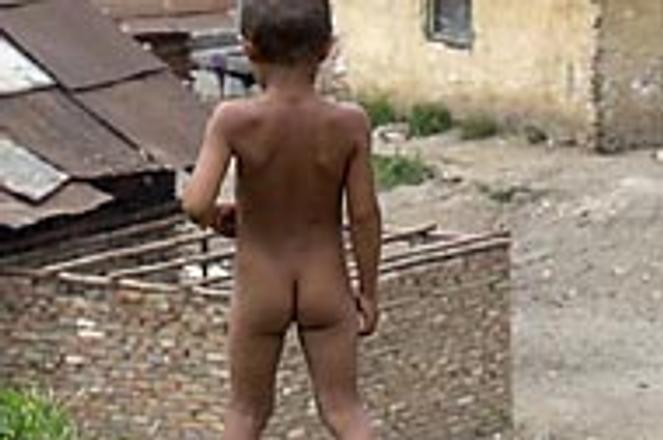Roma are identified as Slovakia's poorest people in the study.photo: TASR
Slovakia is littered with "islands of poverty" and has a social security system which risks creating a poverty trap, a report from the World Bank has warned.
A country report presented by the bank October 24 warned that a "soft" Slovak benefits system discouraged people from looking for work.
It also said that while the nation was relatively poverty-free compared to other former eastern bloc states, more than twice as many Slovaks as Poles or Hungarians were forced to live on just $2 a day.
"In the midst of a relatively well-off population are islands of poverty," the report said.
Unveiling the study on Slovak living standards and employment, representatives of the international financial group were joined by Deputy PM for the Economy Ivan Mikloš in warning the number of poor people in Slovakia was rising.
Figures from 1996 used in the study showed that while only 8.6% of the Slovak population lives below a level of $4.30 per day per person, 2.6% live on less than $2.15 per day. In Hungary the figures are 15.4% and 1.3% respectively, while in Poland 18.4% and 1.2%.
Mikloš warned: "It must be assumed that today these numbers compare even less favourably for Slovakia."
The report also identified Slovakia's estimated 400,000 Roma community as the poorest people in the country. It said Roma ran the highest risk of being caught in a poverty trap.
Low education and a flat refusal by some non-Roma employers to offer them work has left many Roma living in settlements in the east of the country, segregated from the majority and facing dire poverty, the report said.
The study also painted a picture of a country saddled with huge unemployment, but with social benefit levels that encouraged people to avoid work and contributed to keeping poorer families at low income levels.
"For people who have low levels of education, command the lowest wages on the job market, and whose income is not the main one in their families, there is sometimes no sense in working," said Ana Revenga, a member of the team that prepared the study.
"Some people are just not motivated to work under the current system. For example, a woman who gets a low-paid job would lose her rights to child benefits. For her family it may be better if she doesn't go to work," she added.
The report reveals that 14% of families in which members have low education live in poverty.
Poverty has been identified as a serious problem in Slovakia by many international groups. The United Nations Development Programme last year released a report showing that 11% of Slovaks lived below the poverty line.
World Bank regional director Roger Grawe called on the government to reform Slovakia's social welfare system to reduce poverty.
The World Bank wants to see the government adopt a range of measures to raise demand on the labour market through development of the financial sector and support for small and medium sized enterprises, Grawe said.
It has called on cabinet to harmonise the creation of new jobs with reform of the education system and promotion of employee retraining courses. The World Bank also wants to see labour mobility - identified by Slovak economists as one of the key reasons behind the country's 19% unemployment rate - improved.
Many economists agreed with the report's suggestions. "Education and labour mobility are the two real problems behind unemployment. Young people with low education especially have big problems finding a job," said Juraj Kotian, an analyst at Slovenská sporiteľňa bank.
"The other major problem is the system of social welfare, particularly unemployment benefits and their relation to the minimum wage. The minimum wage is Sk4,900 ($100) before taxes, while the unemployment benefit is Sk3,180. That small difference creates an incentive to simply not work, or to perform an unofficial job and take the benefits as well," he said.
Slovakia's 'unofficial' economy, in which incomes are made but not reported or taxed, is estimated to amount to anywhere between 15 and 20% of GDP. The government has repeatedly said it wants to crack down on bosses employing people without contracts and avoiding taxes.
Under Slovak law, employers have to pay an extra 38% of each employee's wages in state social security fund contributions. Many bosses privately admit that in some cases it is much better for them to employ people illegally.
"Employers can make really big savings if they just employ people under the table," said Kotian.
The World Bank's recommendations are not likely to be looked at soon, government members say. Deputy Labour Minister Edith Bauer said after the report's presentation that any recommendations from the study would not be taken up before the next election, set for September 2002.
"Reforming some benefits would be politically very difficult. It would be very unpopular with voters," said Kotian.


